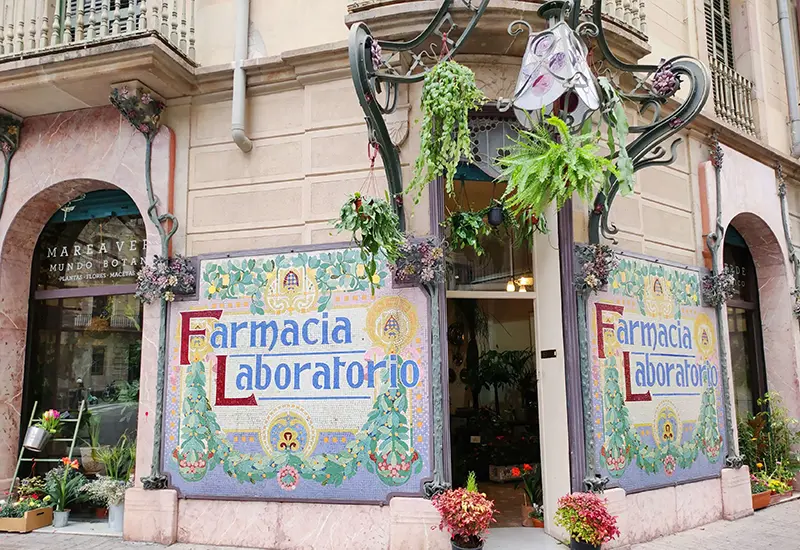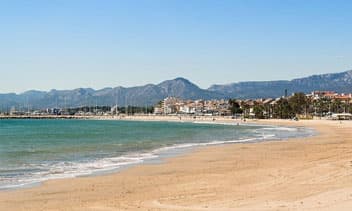
Cost of Living in Spain in 2025: Prices, Budgets, and Expat Guide
Last update: November 27, 2025
Reading time: 23.9 min
No Time to Read It All? Here’s the Quick Summary:
In 2025, the cost of living in Spain remains on average 20–30% lower than in France and far below that of Switzerland or Canada. Housing costs vary by city: Madrid and Barcelona are closer to major European capitals, while Valencia, Seville, or Alicante remain much more affordable. Groceries, restaurants (with the famous menú del día lunch deals for €10–15), leisure activities, and everyday services are significantly cheaper than in Northern Europe. Spain’s free public healthcare system, complemented by affordable private insurance, is another major advantage for expats. The bottom line: whether you’re a student, professional, or retiree, you can enjoy a comfortable lifestyle in Spain on a reasonable budget—along with a sunny climate and excellent quality of life.
Understanding the Cost of Living in Spain in 2025
A country that keeps attracting expats
Every year, Spain welcomes thousands of new residents from France, Belgium, Switzerland, and Canada. The profiles are diverse:
- retirees seeking a sunny climate and a more affordable daily life,
- professionals moving for work opportunities or to set up as freelancers,
- families looking to provide their children with an international and enjoyable environment.
With its Mediterranean lifestyle, rich cultural heritage, and relaxed pace of life, Spain ticks many boxes for future expats. But beyond quality of life, one essential question remains: how much does it really cost to live comfortably in Spain in 2025?
A financial advantage backed by data
According to the latest figures from Expatistan and the OECD, Spain ranks among the most affordable countries in Western Europe. In 2025, it holds the 3rd position among the cheapest nations in the region.
- On average, living in Spain costs 20–30% less than in France.
- Compared to Belgium, the differences are also significant, especially in housing and dining.
- Against Switzerland and Canada, the gap is even more striking: daily expenses can be up to twice as high in those countries compared to Spain.
For expats coming from higher-income countries, this translates into a direct gain in purchasing power and an overall more comfortable lifestyle.
What you’ll find in this guide
In this comprehensive article, we’ll break down the main living expenses in Spain: housing, food, transport, healthcare, education, and leisure. You’ll also find:
- international comparisons (France, Belgium, Switzerland, Canada),
- sample monthly budgets for different profiles (single, couple, family, retiree),
- practical tips to help you optimize your expenses and make the most of life in Spain.

Cost of Living in Spain in 2025: An Overview
Spain: more affordable than its neighbors
In 2025, Spain remains one of the most cost-competitive countries in Western Europe. According to Expatistan and Numbeo, the overall cost of living is 20–30% lower than in France, making Spain a highly attractive destination for expats. The difference is even more striking when compared with Switzerland or Canada, where daily expenses can be up to twice as high.
Spain vs. Belgium, Switzerland, and Canada
- Belgium: Spain is generally cheaper, especially for housing, groceries, and leisure. However, certain services like electricity and Internet may be slightly more expensive.
- Switzerland: The gap is huge. Living in Spain can cut many expenses—housing, food, healthcare—by half compared to Swiss prices.
- Canada: Costs vary across provinces, but overall, living in Spain is about 15–25% cheaper, with housing and healthcare being major advantages for expats.
Purchasing power and local incomes
It’s important to put these figures into context: while prices are lower, the average net salary in Spain is about 25% lower than in France. This means local residents have less purchasing power.
For expats arriving from higher-income countries such as France, Switzerland, or Canada, Spain represents a clear financial advantage, offering more comfort and better value for money.
Comparative Cost of Living Index (2025)
| Country | Cost of Living Index | Difference vs. France |
|---|---|---|
| Spain | 78 | -22% |
| Belgium | 95 | -5% |
| Switzerland | 150 | +50% |
| Canada | 120 | +20% |
Cost of Living Index: 78
Difference vs. France: -22%
Cost of Living Index: 95
Difference vs. France: -5%
Cost of Living Index: 150
Difference vs. France: +50%
Cost of Living Index: 120
Difference vs. France: +20%
Average Salary and Minimum Wage (SMI) in Spain in 2025
The average salary in Spain
To fully understand the cost of living in Spain, it’s important to compare it with local income levels.
According to Spain’s National Institute of Statistics (INE), the average net monthly salary in 2025 is between €1,750 and €1,800. This represents a modest annual growth of about +2 to +3%, but salaries remain significantly lower than in countries like France or Belgium.
The Spanish minimum wage (SMI) in 2025
The Salario Mínimo Interprofesional (SMI) – Spain’s equivalent of the minimum wage – reaches €1,134 net per month in 2025 (calculated over 14 monthly payments, or roughly €15,900 gross per year).
While this is still one of the lowest minimum wages in Western Europe, it is important to note the +54% increase since 2018, reflecting sustained efforts by the Spanish government to combat precarious employment.
International comparison: France, Belgium, Switzerland, Canada
- France: average salary ~€2,500; minimum wage ~€1,400 net.
- Belgium: average salary ~€2,800; minimum wage ~€1,650 net.
- Switzerland: no national minimum wage, but high cantonal minimums (~€3,500–4,000 net); average salary exceeds €5,500.
- Canada: average salary ~€3,200 net; minimum wage varies by province, usually between €1,500 and €1,800.
Impact on expats’ purchasing power
The conclusion is clear: while the cost of living in Spain is 20–30% lower than in France, salaries are also lower, limiting locals’ purchasing power.
For expats coming from higher-income countries such as France, Switzerland, or Canada, this creates a real advantage: the same income allows for a higher standard of living in Spain, especially thanks to more affordable housing and everyday expenses.
Salary and Minimum Wage Comparison (2025)
| Country | Average Net Salary | Minimum Wage (Net) |
|---|---|---|
| Spain | €1,750–1,800 | €1,134 |
| France | €2,500 | €1,400 |
| Belgium | €2,800 | €1,650 |
| Switzerland | €5,500 | €3,500–4,000* |
| Canada | €3,200 | €1,500–1,800 |
*Switzerland has no national minimum wage; figures refer to cantonal thresholds.
Average Net Salary: €1,750–1,800
Minimum Wage (Net): €1,134
Average Net Salary: €2,500
Minimum Wage (Net): €1,400
Average Net Salary: €2,800
Minimum Wage (Net): €1,650
Average Net Salary: €5,500
Minimum Wage (Net): €3,500–4,000*
*No national minimum wage; cantonal thresholds apply.
Average Net Salary: €3,200
Minimum Wage (Net): €1,500–1,800
Housing in Spain: Rents and Utilities in 2025
Madrid and Barcelona: rents comparable to Paris
Housing remains the largest expense for expats in Spain. In 2025, rents in Madrid and Barcelona are on par with other major European capitals such as Paris:
- 1-bedroom apartment in the city center: €1,400–1,800/month
- 3-bedroom apartment in the city center: €2,000+
These high prices reflect both the strong housing demand and the economic and touristic appeal of Spain’s two largest cities.
Regional cities: a more affordable market
In major regional hubs such as Valencia, Seville, or Malaga, rents are significantly more accessible:
- 1-bedroom apartment in the city center: €750–900
- 3-bedroom apartment: €1,200–1,400
On average, this is 30% cheaper than in European capitals like Paris, Brussels, or Geneva, while still offering a high quality of life and strong infrastructure.
Small towns and rural areas: unbeatable rents
In less touristic regions such as Murcia, Extremadura, or Castilla-La Mancha, housing becomes extremely affordable:
- 1-bedroom apartment: €450–600
- Family house with a garden: often under €1,000/month
These conditions explain why many retirees and remote workers are drawn to these areas: they can cut housing expenses dramatically while enjoying a comfortable lifestyle.
Utilities and Internet costs
In addition to rent, expats should budget for monthly utilities (electricity, water, gas, waste collection), which average €120–180.
High-speed Internet is very affordable, at €25–30/month, similar to France and Belgium but much cheaper than in Switzerland.
Rent Comparison Table (2025)
| Country | Average Rent | Difference vs Spain |
|---|---|---|
| Spain | ~€850 | — |
| France | ~€950 | +12% |
| Belgium | ~€730 | -14% |
| Switzerland | ~1,900 CHF (≈€1,950) | +129% |
| Canada | ~2,000 CAD (≈€1,380) | +62% |
Average Rent: ~€850
Difference vs Spain: —
Average Rent: ~€950
Difference vs Spain: +12%
Average Rent: ~€730
Difference vs Spain: -14%
Average Rent: ~1,900 CHF (≈€1,950)
Difference vs Spain: +129%
Average Rent: ~2,000 CAD (≈€1,380)
Difference vs Spain: +62%
How to reduce your housing budget in Spain
- Choose flat-sharing: In Barcelona, a room in a shared apartment costs €550–650, much cheaper than renting alone.
- Move to the suburbs: In Madrid’s first commuter belt, rents drop by 25–35% compared to the city center.
- Opt for medium-sized cities: In Alicante, Valencia, or Murcia, you can rent a 3-bedroom flat for the price of a studio in Paris.

Food and Dining in Spain
Groceries: cheaper than in France or Switzerland
In 2025, grocery shopping in Spain is on average 13% cheaper than in France, with even greater savings compared to Switzerland. Thanks to abundant agriculture and strong local supply chains, fresh produce, meat, and dairy remain very affordable for expats.
Examples (early 2025):
- Bread (500 g): €1.30 (France: €1.50 / Switzerland: CHF 2.50)
- 12 eggs: €2.50 (France: €3.80 / Switzerland: CHF 8)
- Chicken (1 kg): €7.00 (France: €12 / Belgium: €10)
- Apples (1 kg): €2.10 (France: €2.80)
A family of four can save 15–20% compared to France, and as much as 40–50% compared to Switzerland, simply on groceries.
Restaurants: the land of the “menú del día”
Eating out is one of Spain’s strongest advantages. The famous menú del día—a full lunch menu with starter, main, dessert, and drink—costs €10–15. By comparison, the same meal would cost €18–20 in France and rarely less than CHF 25 in Switzerland.
- Tapas are another budget-friendly option, typically €3–6 per dish, allowing you to dine out for much less.
- A full dinner in a mid-range restaurant costs €25–30 per person, versus €40–50 in Paris or Brussels.
Alcohol prices in Spain
Spain also stands out for its low alcohol prices, a noticeable perk for expats:
- Bottle of local wine: €4–6 (France: €7 / Switzerland: CHF 12)
- Draft beer (50 cl at a bar): €2–3 (France: €5–6 / Geneva: CHF 7)
Whether for day-to-day consumption or social outings, alcohol remains significantly cheaper than in northern Europe.
Comparative Table: Food & Restaurants (2025)
| Product / Service | Spain | France | Belgium | Switzerland |
|---|---|---|---|---|
| Bread (500 g) | €1.30 | €1.50 | €1.40 | CHF 2.50 |
| 12 eggs | €2.50 | €3.80 | €3.50 | CHF 8 |
| Chicken (1 kg) | €7.00 | €12.00 | €10.00 | CHF 20 |
| Restaurant lunch menu | €12 | €18 | €20 | CHF 25 |
| Draft beer (50 cl) | €2.50 | €5.00 | €4.50 | CHF 7 |
| Bottle of wine | €5.00 | €7.00 | €8.00 | CHF 12 |
Spain: €1.30
France: €1.50
Belgium: €1.40
Switzerland: CHF 2.50
Spain: €2.50
France: €3.80
Belgium: €3.50
Switzerland: CHF 8
Spain: €7.00
France: €12.00
Belgium: €10.00
Switzerland: CHF 20
Spain: €12
France: €18
Belgium: €20
Switzerland: CHF 25
Spain: €2.50
France: €5.00
Belgium: €4.50
Switzerland: CHF 7
Spain: €5.00
France: €7.00
Belgium: €8.00
Switzerland: CHF 12

Transportation in Spain: Public Transit, Fuel, and Mobility Costs
Public transport passes
In Spain’s major cities such as Madrid and Barcelona, public transport (metro, bus, tram) remains very affordable compared to other European capitals.
- Monthly pass: €40–55
- Paris: ~€75
- Brussels: ~€50
- Switzerland: 80+ CHF (≈€82)
- Canada: ~CAD 110 (≈€74) in major cities
A single ticket usually costs €1.50–1.70, about 20–30% cheaper than in France. Many municipalities also offer student and youth discounts, making urban mobility especially attractive for families and international students.
Fuel prices: a Spanish advantage
Fuel remains another indicator of Spain’s competitive cost of living. In 2025, gasoline prices average €1.50/L:
- Cheaper than in France (€1.65–1.70/L)
- Much lower than in Switzerland (CHF 1.75–1.80/L)
- Slightly higher than in Canada, where pump prices are lower but insurance and maintenance are significantly more expensive.
For drivers, this means the overall cost of mobility in Spain is lower once insurance and upkeep are factored in.
Car insurance and maintenance
Auto insurance in Spain is typically 20–30% cheaper than in France, depending on driver profile and coverage.
Maintenance and repair costs are also lower than in Northern Europe, reducing the total burden of car ownership.
What this means for expats
Whether you rely on public transit or drive your own car, the transportation budget in Spain is lighter than in France, Switzerland, or Canada. This makes Spain an attractive choice for expats who want to optimize their monthly expenses without sacrificing mobility.
Transport Costs Comparison (2025)
| Country | Average Monthly Pass | Difference vs Spain |
|---|---|---|
| Spain | ~€50 | — |
| France | ~€75 | +50% |
| Belgium | ~€50 | ≈ |
| Switzerland | ~CHF 80 (≈€82) | +64% |
| Canada | ~CAD 110 (≈€74) | +48% |
Average Monthly Pass: ~€50
Difference vs Spain: —
Average Monthly Pass: ~€75
Difference vs Spain: +50%
Average Monthly Pass: ~€50
Difference vs Spain: ≈
Average Monthly Pass: ~CHF 80 (≈€82)
Difference vs Spain: +64%
Average Monthly Pass: ~CAD 110 (≈€74)
Difference vs Spain: +48%

Healthcare and Health Insurance in Spain
A high-quality public healthcare system
One of Spain’s greatest advantages is its public healthcare system, consistently ranked among the best in Europe.
All residents with salaried or self-employed status, as well as European retirees through the S1 form, have access to free medical care, including:
- General practitioner visits
- Specialist consultations
- Hospital treatments
- Basic medical care
These services are fully covered with no upfront payments, making healthcare in Spain a major financial advantage compared to many other countries.
Limitations of the public system
The main drawback is waiting times. For certain specialties or advanced diagnostic tests, delays of several weeks are common—especially in larger cities where demand is higher.
Private health insurance: a common complement
To avoid delays and access broader services (optical, dental, alternative medicine, faster hospitalization), many expats choose to take out private health insurance.
- Average cost in 2025: €50–100 per month, depending on age, region, and coverage level.
Even with this additional cost, Spain remains far more affordable than most Francophone and North American countries.
International comparison of healthcare costs
- France: generous public system, but a private “mutuelle” is often required (€30–80/month).
- Belgium: similar structure to France, with comparable costs via “mutualités”.
- Switzerland: private insurance is mandatory and among the most expensive in the world (€300–500 CHF/month per person).
- Canada: public care is free for residents, but private coverage is often needed for prescriptions, dental, and specialist services—typically more costly than in Spain.
A major advantage for expats
For expats relocating from Switzerland or Canada, the difference is striking: moving to Spain can cut healthcare expenses dramatically, while still enjoying a high-quality, universal system.

Education and Schooling Costs in Spain
Free and accessible public schools
Spain provides free public education for children aged 6 to 16, covering the mandatory school years. Primary schools, secondary schools, and public high schools welcome foreign children without additional fees—an important advantage for expat families.
In some regions, textbooks and part of school supplies are also subsidized, further reducing education-related expenses.
Private and international schools
For families seeking bilingual education or internationally recognized programs (French Baccalauréat, International Baccalaureate, British or American curricula), Spain offers a wide network of private and international schools.
- Average tuition fees: €4,000–€10,000 per year, depending on the city, the school’s reputation, and the grade level.
- Examples: The Lycées Français in Madrid, Barcelona, and Valencia deliver high-quality education at fees generally lower than equivalent international schools in Paris, Brussels, or Zurich.
For expats, international schools in Spain remain more affordable than in Switzerland (often > €20,000/year) or Canada (€10,000–15,000 CAD/year in major cities).
Higher education in Spain
Public universities in Spain are very cost-effective, with tuition fees ranging from €300 to €1,000 per year, depending on the program and the region.
Private universities and specialized schools (business, engineering, healthcare) are more expensive, typically €5,000–€12,000 per year, but still below average tuition levels in Switzerland or Canada.
International comparisons
- France & Belgium: public universities are almost free (€200–600/year).
- Switzerland: public universities remain affordable (€1,000–2,000 CHF/year), but private institutions exceed €20,000/year.
- Canada: public universities are significantly more expensive (€5,000–15,000 CAD/year), especially for foreign students.
Bottom line
Spain enables expat families to control their education budget while accessing high-quality schooling—whether through free public schools, bilingual international programs, or affordable universities.
Leisure and Quality of Life in Spain
A rich cultural and social life—often free
Living in Spain means enjoying constant access to culture and community life at little to no cost. Many national museums—such as the Prado in Madrid, the Picasso Museum in Barcelona, or the Museum of Fine Arts in Valencia—offer free entry on certain days of the week.
Spain’s popular festivals, including Las Fallas in Valencia, Feria de Abril in Seville, and the San Juan summer celebrations, are open to everyone and create unforgettable experiences without straining your budget. Add to this the free access to beaches, national parks, and hiking trails, and you get a lifestyle where enjoying nature and culture doesn’t have to cost a fortune.
Affordable paid activities
Even when it comes to paid leisure activities, Spain remains highly competitive compared to its European neighbors.
- Gym memberships: €15–30 per month (half the price of France and nearly a third of Swiss fees, which average 40–80 CHF).
- Movie tickets: €7–8 on average, versus €11 in France and up to 18 CHF in Switzerland.
This makes it easy for students, families, and retirees to enjoy frequent outings without overspending.
Everyday services at lower cost
Personal services are also significantly more affordable than in most French-speaking countries:
- Haircuts: €15–20 (vs €30 in France and 40 CHF in Switzerland).
- Housekeeping services: €12–15/hour, compared with €18–20 in Belgium and 30 CHF in Switzerland.
More comfort for less money
For expats, the conclusion is clear: leisure, personal services, and social life cost up to 40% less in Spain than in Northern Europe. This price gap allows residents to set aside a larger budget for leisure and comfort—enhancing overall quality of life while keeping expenses under control.
Typical Monthly Budget in Spain in 2025
Single in a mid-sized city
A single expat living in a regional city such as Alicante, Murcia, or Granada can expect a monthly budget of around €1,500.
This includes:
- Rent: €600–700 for a one-bedroom apartment
- Groceries: around €200
- Transport: ~€50 (public transport pass)
- Utilities, leisure, and daily expenses
Result: even with a modest income, singles can enjoy a comfortable lifestyle in Spain’s mid-sized cities.
Couple in Barcelona
In a major metropolis like Barcelona, expenses rise quickly. A couple should plan for a minimum monthly budget of €2,500.
The largest share goes to rent (€1,400–1,800 for a two-bedroom in the city center). On top of that:
- Groceries: ~€400
- Frequent dining out and leisure, usually more expensive than elsewhere in Spain
Barcelona and Madrid offer many opportunities, but their cost of living is closer to that of other European capitals.
Family of four in Valencia
For a family with two children, Valencia is a good example of Spain’s cost–quality of life balance.
A monthly budget of around €3,000 covers:
- Rent: €1,200–1,400 for a three-bedroom apartment
- Groceries: ~€600
- Transport, family leisure, and schooling (excluding private international schools)
This budget allows a comfortable lifestyle, with room for travel, extracurricular activities, and cultural outings.
Retired couple in Andalusia
Outside of high-demand tourist areas like Marbella, Andalusia remains a favorite destination for retirees.
With a monthly budget of €1,200–1,800, it is possible to cover:
- Rent: €450–600 for a small flat
- Groceries and utilities
- Leisure and outings—all while enjoying Spain’s mild, sunny climate
Estimated monthly budgets by profile (Spain, 2025)
| Profile | City / Region | Estimated Monthly Budget |
|---|---|---|
| Single | Alicante / Murcia / Granada | ~€1,500 |
| Couple | Barcelona | ~€2,500 |
| Family of four | Valencia | ~€3,000 |
| Retired couple | Andalusia (non-tourist areas) | €1,200–1,800 |
City / Region: Alicante / Murcia / Granada
Estimated Monthly Budget: ~€1,500
City / Region: Barcelona
Estimated Monthly Budget: ~€2,500
City / Region: Valencia
Estimated Monthly Budget: ~€3,000
City / Region: Andalusia (non-tourist areas)
Estimated Monthly Budget: €1,200–1,800
Key takeaway
These estimates show that the cost of living in Spain varies widely depending on the city and lifestyle.
- Large metropolitan areas require higher incomes.
- Mid-sized cities and rural regions offer an excellent value-for-money lifestyle for students, families, and retirees alike.

Spain or Portugal: Which Destination Is More Affordable?
Many expats considering Southern Europe often hesitate between Spain and Portugal. Both countries offer a sunny climate, a laid-back lifestyle, and a cost of living far below that of France, Belgium, or Switzerland. According to 2025 data (Expatistan, Numbeo), Portugal is on average 18% cheaper than France, while Spain sits at 25–30% below France. Overall, Spain holds a slight advantage, though the picture varies depending on the expense category.
Housing: Spain offers a more balanced market
Housing is the factor that makes the biggest difference. In Lisbon and the Algarve, rents have surged due to tourism and foreign investment, sometimes exceeding those in Valencia or Seville.
In Porto or Braga, Portugal remains competitive, but overall Spain provides a more diverse housing market, making it easier to find affordable rents outside of Madrid and Barcelona.
Food: advantage Portugal
Groceries are on average 5–10% cheaper in Portugal than in Spain. Staples such as bread, fresh fruit, and fish often cost less in Portuguese supermarkets, although the gap is relatively small.
Leisure & transport: advantage Spain
Urban transport tends to be more affordable in Spain (monthly pass €40–55 in Madrid vs. €50–60 in Lisbon).
When it comes to leisure, Spain has a broader cultural and social offer—think free-entry museums, lively tapas bars, and world-famous festivals—at generally lower prices than Portugal’s big cities.
Spain vs. Portugal Cost of Living Comparison (2025)
| Expense Category | Spain | Portugal |
|---|---|---|
| Overall cost of living vs. France | -25% to -30% | -18% |
| Rent (1-bedroom, city center) | ~€850 (outside Madrid/Barcelona) | €900–1,100 in Lisbon / Algarve |
| Groceries | Slightly cheaper than France | 5–10% cheaper than Spain |
| Public transport pass | €40–55 | €50–60 |
| Leisure (cinema, gym) | Cinema €7–8, gym €20 | Cinema €8–9, gym €25 |
Spain: -25% to -30%
Portugal: -18%
Spain: ~€850 (outside Madrid/Barcelona)
Portugal: €900–1,100 in Lisbon / Algarve
Spain: Slightly cheaper than France
Portugal: 5–10% cheaper than Spain
Spain: €40–55
Portugal: €50–60
Spain: Cinema €7–8, gym €20
Portugal: Cinema €8–9, gym €25
Bottom line
Portugal is slightly cheaper for groceries and provincial living, but Spain offers a better overall balance: more affordable housing in mid-sized cities, efficient public transport networks, and a wider cultural offer. For expats, the choice often comes down to lifestyle preferences—Portugal appeals for small-city living, while Spain provides more variety and opportunities in larger urban areas.
Practical Tips to Reduce the Cost of Living in Spain
Even though Spain is more affordable than most French-speaking countries, there are many ways to optimize your daily budget. Here are the best strategies in 2025 to live comfortably while keeping expenses under control.
Choose the right city
Location makes a huge difference. Major hubs like Madrid and Barcelona are attractive but come with steep rents. By contrast, moving to a mid-sized city such as Valencia, Alicante, Murcia, or Granada can cut expenses by 20–30% while still offering modern infrastructure, cultural life, and excellent amenities.
Shop smart for groceries
Discount supermarkets like Mercadona, Lidl, or Alcampo, along with local markets, are essential for saving money. Buying directly from producers means fresher products at lower prices. On average, a grocery basket can cost 15–20% less than in traditional supermarkets.
Take advantage of the menú del día
Spain’s famous menú del día (set lunch menu) remains one of the best-value dining options. For €10–15, you’ll get a full meal with starter, main course, dessert, and a drink. This unbeatable deal is ideal for students, workers, and retirees who want to eat out regularly without overspending.
Prioritize public transport
A monthly pass in major Spanish cities costs about €50, compared to €75 in Paris. Choosing public transport over a car avoids extra costs for fuel, insurance, and maintenance. Students and young professionals can also benefit from additional discounts through youth cards.
Reduce housing expenses
In high-demand areas like Madrid and Barcelona, flat-sharing (coliving) can cut your housing costs by half: a room averages €550–650, versus around €1,400 for a studio. Moving to the suburbs is another smart option, lowering rent by 25–35% while keeping quick access to city centers via efficient transport networks.
By combining these strategies, expats can save 10–20% on their monthly budget while still enjoying Spain’s high quality of life.
| Expense Category | Spain | Portugal |
|---|---|---|
| Overall cost of living vs. France | -25% to -30% | -18% |
| Rent (1-bedroom, city center) | ~€850 (outside Madrid/Barcelona) | €900–1,100 in Lisbon / Algarve |
| Groceries | Slightly cheaper than France | 5–10% cheaper than Spain |
| Public transport pass | €40–55 | €50–60 |
| Leisure (cinema, gym) | Cinema €7–8, gym €20 | Cinema €8–9, gym €25 |
Spain: -25% to -30%
Portugal: -18%
Spain: ~€850 (outside Madrid/Barcelona)
Portugal: €900–1,100 in Lisbon / Algarve
Spain: Slightly cheaper than France
Portugal: 5–10% cheaper than Spain
Spain: €40–55
Portugal: €50–60
Spain: Cinema €7–8, gym €20
Portugal: Cinema €8–9, gym €25
Bottom line
Portugal is slightly cheaper for groceries and provincial living, but Spain offers a better overall balance: more affordable housing in mid-sized cities, efficient public transport networks, and a wider cultural offer. For expats, the choice often comes down to lifestyle preferences—Portugal appeals for small-city living, while Spain provides more variety and opportunities in larger urban areas.
Living Better for Less in Spain in 2025
A consistently competitive country in Western Europe
In 2025, Spain reaffirms its position as one of the most attractive destinations for expats. With a cost of living 20–30% lower than France, and significantly cheaper than Switzerland or Canada, Spain remains one of the best choices to combine a high quality of life with a well-managed budget.
Differences depending on city and lifestyle
While Madrid and Barcelona have rental prices comparable to Paris or Brussels, most Spanish cities – such as Valencia, Seville, Alicante, Murcia, or Málaga – are far more affordable. Coastal towns and rural areas even offer unique opportunities for retirees and remote workers, thanks to their very low overall living costs.
A comfortable and affordable daily life
Affordable groceries, budget-friendly restaurants with the menú del día, inexpensive public transport, and a free public healthcare system for residents all contribute to making daily life in Spain both comfortable and financially accessible.
A destination that fits every lifestyle
Every expat profile can find its place in Spain:
- Students: low university fees and affordable transport.
- Professionals: a balanced lifestyle combining work opportunities and leisure.
- Retirees: a monthly budget of €1,200–1,800 is often enough to live comfortably in Andalusia or along the Mediterranean coast.
Whether you’re moving for studies, career opportunities, or retirement, Spain offers one of the best value-for-money lifestyles in Europe in 2025.








